Life
Sign up for our newsletter
We summarize the week's scientific breakthroughs every Thursday.
-
 Neuroscience
NeuroscienceThe way the coronavirus messes with smell hints at how it affects the brain
Conflicting reports offer little clarity about whether COVID-19 targets the brain.
-
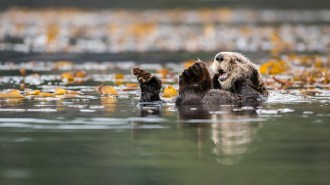 Ecosystems
EcosystemsBringing sea otters back to the Pacific coast pays off, but not for everyone
Benefits of reintroducing sea otters in the Pacific Northwest, such as boosting tourism, vastly outweigh the costs, a new analysis shows.
-
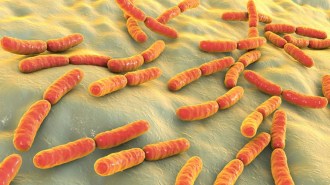 Life
LifeScientists want to build a Noah’s Ark for the human microbiome
Just as the Svalbard Global Seed Vault protects global crop diversity, the Microbiota Vault may one day protect the microbes on and in our bodies.
-
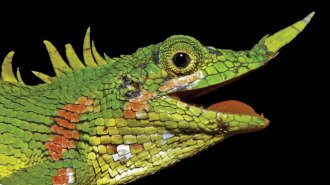 Animals
AnimalsA nose-horned dragon lizard lost to science for over 100 years has been found
It’s now known that a Modigliani’s lizard, first found in 1891 in Indonesia, is bright green but can shift shades like a chameleon.
-
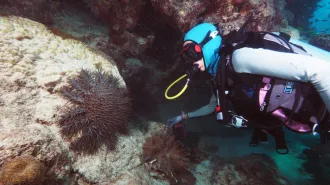 Life
LifeFish poop exposes what eats the destructive crown-of-thorns starfish
During population booms, crown-of-thorns can devastate coral reefs. Identifying predators of the coral polyp slurpers could help protect the reefs.
By Jake Buehler -
 Animals
Animals5 reasons you might be seeing more wildlife during the COVID-19 pandemic
From rats and coyotes in the streets to birds in the trees, people are noticing more animals than ever during the time of the coronavirus.
-
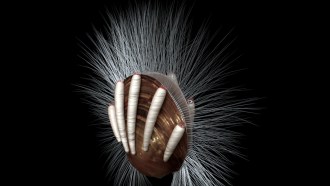 Life
LifeThese tube-shaped creatures may be the earliest known parasites
Fossils from over 500 million years ago might be the first known example of parasitism in the fossil record, though the evidence isn’t conclusive.
-
 Humans
HumansThe Dead Sea Scrolls contain genetic clues to their origins
Animal DNA is providing researchers with hints on how to assemble what amounts to a giant jigsaw puzzle of ancient manuscript fragments.
By Bruce Bower -
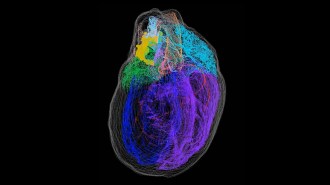 Neuroscience
NeuroscienceA new 3-D map illuminates the ‘little brain’ within the heart
Microscopy and genetic studies yield a comprehensive map of the nerve cells found in the heart of a rat.
-
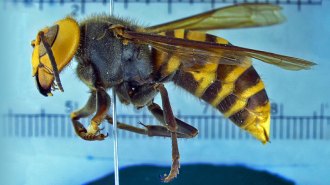 Life
LifeMore ‘murder hornets’ are turning up. Here’s what you need to know
Two more specimens of the world’s largest hornet have just been found in North America.
By Susan Milius -
 Genetics
GeneticsGenetic risk factors for Alzheimer’s also raise the risk of getting COVID-19
People who have the APOE4 genetic variant appear to be more vulnerable to the disease, but it’s unclear why.
-
 Life
LifeNeon colors may help some corals stage a comeback from bleaching
When some corals bleach, they turn bright colors. Stunning hues may be part of a response that helps the corals recover and reunite with their algae.